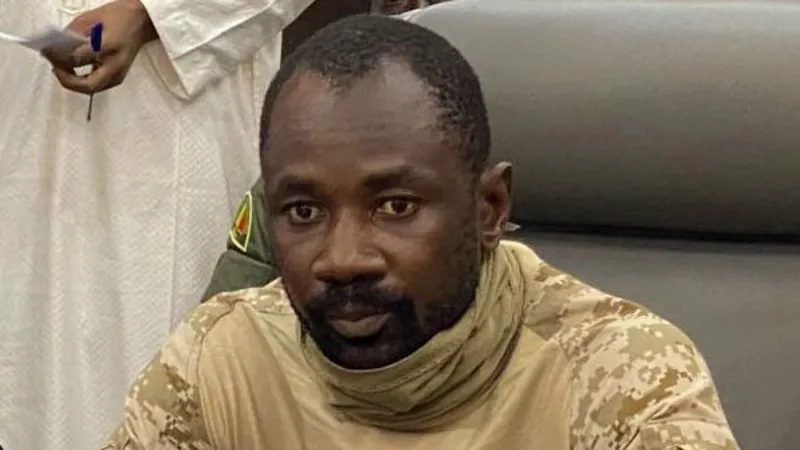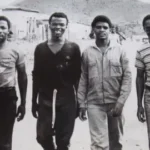In a significant turn of events, Malian military leader Assimi Goïta has consolidated his power, securing backing from key political actors and military institutions to serve as the country’s president for the next five years. This development marks a pivotal moment in Mali’s complex political landscape, raising questions about democratic processes, stability, and the future trajectory of the West African nation.
Background: A Nation in Transition
Mali has faced persistent instability since 2012, with a series of coups, insurgencies, and political upheavals. The most recent upheaval occurred in August 2020, when Goïta led a military coup that ousted President Ibrahim Boubacar Keïta. Subsequently, Mali transitioned into a transitional government, promising to restore civilian rule and hold elections. However, delays and internal disagreements postponed the electoral process, leading to continued military influence over governance.
Assimi Goïta’s Rise and Consolidation of Power
Assimi Goïta, the current transitional vice president and leader of the National Committee for the Salvation of the People (CNSP), has effectively maneuvered to position himself as Mali’s de facto ruler. His strategic alliances with military commanders, influential politicians, and international partners have played a crucial role in this consolidation.
Evidence of Backing
- Military Support: Goïta commands a substantial segment of Mali’s armed forces. His control over the military hierarchy ensures that his political ambitions are backed by significant coercive power. Military loyalty was demonstrated when troops reportedly clashed with factions opposing his leadership, reaffirming his grip on security apparatuses.
- Political Endorsements: Several political figures and parties have publicly expressed support or acquiesced to Goïta’s leadership. Notably, some opposition groups have called for stability and have refrained from overt opposition, viewing Goïta as the best guarantor of order amid ongoing insurgencies.
- International Recognition: While some Western nations and regional organizations have called for a swift return to civilian rule, regional bodies like the Economic Community of West African States (ECOWAS) have adopted a pragmatic stance. ECOWAS has engaged with Goïta’s government, emphasizing dialogue over sanctions, and has recognized his authority as the transitional leader, thus lending him legitimacy.
- Legal and Institutional Moves: The government has taken steps to legitimize Goïta’s leadership through constitutional amendments and the organization of presidential elections scheduled for 2024. These measures, though contested by some opposition factions, are presented as efforts to restore democratic legitimacy, with Goïta positioned as the future leader.
Factors Contributing to Support
- Security Concerns: Mali’s ongoing insurgencies, notably by jihadist groups, have created a climate where security is prioritized over immediate democratic transitions. Many Malians view Goïta’s firm military leadership as essential to maintaining stability.
- Economic and Social Challenges: Economic hardships, displacement, and poverty have fostered frustration with political instability. Supporters argue that Goïta’s leadership is necessary to address these issues effectively.
- Regional Stability: Neighboring countries and regional bodies see Mali’s stability as crucial for West Africa’s broader security landscape. Supporting Goïta is viewed as a way to prevent further chaos that could spill over borders.
Controversies and Criticisms
Despite backing from various sectors, Goïta’s rise has not been without controversy. Critics accuse him of undermining democratic processes, citing delays in elections and the concentration of power. Human rights organizations have raised concerns about alleged abuses by security forces under his command.
Conclusion: A Complex Political Reality
Assimi Goïta’s emergence as Mali’s de facto leader for the next five years is underpinned by a complex web of military loyalty, political endorsements, regional recognition, and strategic considerations. While he claims to be steering Mali toward stability and eventual democracy, critics remain wary of authoritarian tendencies and the erosion of democratic norms.
As Mali navigates this transitional period, the international community’s role will be crucial in balancing support for stability with the promotion of democratic principles. Whether Goïta’s leadership will lead Mali toward lasting peace and democratic renewal or entrench autocratic rule remains a question for the coming years. For now, the facts suggest that his backing—rooted in military strength, regional acceptance, and pragmatic politics—has secured his position as Mali’s leader for the foreseeable future.
Email Us on editorial@nnafrica.com













